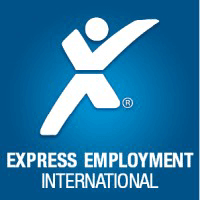Not sure if Express Services, Inc. is right for you?
Talk to a Franchise Advisor who can match you with your perfect franchise based on your goals, experience, and investment range.
Talk to an Expert
Express Services, Inc.
How much does Express Services, Inc. cost?
Initial Investment Range
$91,700 to $503,100
Franchise Fee
$40,000
The franchisee will operate an “Express Employment Professionals,” “Specialized Recruiting Group, or “Express Healthcare Staffing” business that may provide a variety of services, including temporary staffing temporary/contract staffing, and direct hire business.
Enjoy our partial free risk analysis below
Unlock the full risk analysis to access 9 more categories covering 100+ risks.
Express Services, Inc. March 28, 2025 FDD Risk Analysis
Free FDD Library AI Analysis Date: July 16, 2025
DISCLAIMER: Not Legal Advice - For Informational Purposes Only. Consult With Qualified Franchise Professionals.
Franchisor Stability Risks
Start HereDisclosure of Franchisor's Financial Instability
Low Risk
Explanation
The franchisor's audited financial statements in Item 21 appear to reflect a strong and stable financial position. The company shows significant net worth and consistent profitability. This financial stability is a positive indicator, as it suggests the franchisor has the resources to support its franchisees and invest in the growth and maintenance of the brand.
Potential Mitigations
- Have your accountant review the audited financial statements, including the notes, to provide an independent assessment of the franchisor's financial health.
- Discuss the franchisor's financial performance and capitalization with a business advisor to understand its ability to fund future growth and support.
- Engaging your franchise attorney to confirm there are no red flags in the auditor's opinion letter is a prudent step.
High Franchisee Turnover
Low Risk
Explanation
The franchisee turnover rates disclosed in Item 20 appear to be very low for a system of this size. The number of terminations, non-renewals, and other cessations is small relative to the total number of operating units. This low turnover can be a positive indicator of franchisee satisfaction and the potential viability of the business model.
Potential Mitigations
- Despite the low numbers, it is wise to contact some of the former franchisees listed in Item 20 to understand their reasons for leaving the system.
- A business advisor can help you interpret the Item 20 tables and compare the turnover rates to industry benchmarks for staffing franchises.
- Discuss the franchisor's process for handling franchisee exits and resales with your franchise attorney.
Rapid System Growth
Low Risk
Explanation
The data in Item 20 indicates that the franchise system is mature and not undergoing rapid expansion. In fact, the total number of outlets has remained stable or slightly decreased over the last three years. This suggests the franchisor's resources are unlikely to be strained by rapid growth, which can be a positive factor for franchisee support.
Potential Mitigations
- Discuss the franchisor's future growth strategy with a business advisor to understand their focus for the coming years.
- Ask current franchisees about their perception of the franchisor's support levels and whether resources seem adequate for the system's needs.
- Your attorney can review the franchisor's obligations for franchisee support outlined in the Franchise Agreement.
New/Unproven Franchise System
Low Risk
Explanation
This risk was not identified in the FDD package. The franchisor, Express Services, Inc. (ESI), has a very long history, having offered franchises since 1985. A long operational history can indicate a proven business model, established brand recognition, and experienced management, which are generally positive attributes for a prospective franchisee.
Potential Mitigations
- A business advisor can help you assess the franchisor's long-term track record and its evolution over the decades.
- Discuss with current franchisees how the system has adapted and changed over the years to stay competitive.
- Your attorney can review the stability of the franchise agreements and system over time based on the documents provided.
Possible Fad Business
Low Risk
Explanation
The business model, providing temporary and permanent staffing services, is a well-established and essential component of the business economy. It is not considered a fad. However, the business is sensitive to economic cycles, which is a standard risk for this industry.
Potential Mitigations
- Engaging a business advisor to research the local economic outlook and demand for staffing services in your specific market is recommended.
- An accountant can help you model financial scenarios based on different economic conditions to stress-test your business plan.
- Discuss the franchisor's strategies for navigating economic downturns with current franchisees.
Inexperienced Management
Low Risk
Explanation
The executive team detailed in Item 2 appears to have extensive and long-term experience in both the staffing industry and franchising. Several key personnel have been with the company for decades or are themselves franchisees. This depth of experience is generally a positive sign for a system's leadership and operational knowledge.
Potential Mitigations
- A business advisor can help you research the professional backgrounds of the key management personnel listed in Item 2.
- When speaking with current franchisees, inquire about their direct experiences with and perceptions of the management team's competence and support.
- During your own interactions, assess the professionalism and knowledge of the franchising team.
Private Equity Ownership
Low Risk
Explanation
This FDD package does not indicate that the franchisor is owned or controlled by a private equity firm. Ownership appears to reside with individuals who have a long history with the company. This can be a positive factor, as it often aligns the franchisor's long-term goals with those of its franchisees, rather than prioritizing short-term investor returns.
Potential Mitigations
- It is still prudent to ask the franchisor about their long-term ownership plans and succession strategy.
- Your attorney can review the 'Assignment' clause in the Franchise Agreement to understand the franchisor's rights to sell the system in the future.
- A business advisor can help you understand the potential implications of any future change in ownership.
Non-Disclosure of Parent Company
Low Risk
Explanation
This risk was not identified in the FDD package. Item 1 explicitly states that the franchisor, Express Services, Inc. (ESI), does not have a parent company. The disclosure appears to be clear regarding the corporate structure, presenting ESI as the primary entity with which you would be contracting.
Potential Mitigations
- Your attorney can verify the corporate structure and confirm the absence of a parent company through public records searches.
- An accountant's review of the financial statements in Item 21 can provide further assurance about the franchisor's standalone financial capacity.
- Ask the franchisor to confirm in writing that there are no parent entities whose financial condition is material to the franchise system's health.
Predecessor History Issues
Low Risk
Explanation
This risk was not identified, as Item 1 clearly states that the franchisor has no predecessor companies. This means the historical information presented in the FDD, such as litigation (Item 3), bankruptcy (Item 4), and franchisee turnover (Item 20), pertains directly to the current franchising entity, which provides for clearer due diligence.
Potential Mitigations
- It is still valuable to discuss the franchisor's long operational history with current franchisees to gather historical context.
- Your business advisor can help research the company's public reputation and history.
- Your attorney can confirm there are no undisclosed predecessor issues based on their review of the FDD.
Pattern of Litigation
Medium Risk
Explanation
Item 3 discloses a lawsuit filed by a franchisee in 2020 alleging fraud and misrepresentation, which was settled. While this is a single case in a very large system, any litigation where a franchisee alleges misrepresentation by the franchisor warrants careful consideration. You should investigate the circumstances to the extent possible.
Potential Mitigations
- Your franchise attorney should carefully review the disclosure and, if possible, research the court records for the Sydlynn case for more detail.
- When conducting due diligence, you might discreetly ask long-term franchisees if they are aware of similar disputes or dissatisfaction.
- A business advisor can help you assess whether this isolated incident suggests any broader risks in the franchisor's sales or support process.
Disclosure & Representation Risks
Example Risk: Franchisee Financial Obligations
Blue Risk
Explanation
This risk involves the financial obligations that a franchisee must meet, including initial fees, ongoing royalties, and other required payments. Understanding these obligations is crucial for long-term success.
Potential Mitigations
- Carefully review the Franchise Disclosure Document (FDD) and consult with a franchise attorney to fully understand all financial commitments before signing.
- Conduct regular risk assessments
- Implement monitoring and reporting systems
Unlock Full Risk Analysis
Purchase the complete risk review to see all 102 risks across all 10 categories.
Financial & Fee Risks
Example Risk: Franchisee Financial Obligations
Blue Risk
Explanation
This risk involves the financial obligations that a franchisee must meet, including initial fees, ongoing royalties, and other required payments. Understanding these obligations is crucial for long-term success.
Potential Mitigations
- Carefully review the Franchise Disclosure Document (FDD) and consult with a franchise attorney to fully understand all financial commitments before signing.
- Conduct regular risk assessments
- Implement monitoring and reporting systems
Unlock Full Risk Analysis
Purchase the complete risk review to see all 102 risks across all 10 categories.
Legal & Contract Risks
Example Risk: Franchisee Financial Obligations
Blue Risk
Explanation
This risk involves the financial obligations that a franchisee must meet, including initial fees, ongoing royalties, and other required payments. Understanding these obligations is crucial for long-term success.
Potential Mitigations
- Carefully review the Franchise Disclosure Document (FDD) and consult with a franchise attorney to fully understand all financial commitments before signing.
- Conduct regular risk assessments
- Implement monitoring and reporting systems
Unlock Full Risk Analysis
Purchase the complete risk review to see all 102 risks across all 10 categories.
Territory & Competition Risks
Example Risk: Franchisee Financial Obligations
Blue Risk
Explanation
This risk involves the financial obligations that a franchisee must meet, including initial fees, ongoing royalties, and other required payments. Understanding these obligations is crucial for long-term success.
Potential Mitigations
- Carefully review the Franchise Disclosure Document (FDD) and consult with a franchise attorney to fully understand all financial commitments before signing.
- Conduct regular risk assessments
- Implement monitoring and reporting systems
Unlock Full Risk Analysis
Purchase the complete risk review to see all 102 risks across all 10 categories.
Regulatory & Compliance Risks
Example Risk: Franchisee Financial Obligations
Blue Risk
Explanation
This risk involves the financial obligations that a franchisee must meet, including initial fees, ongoing royalties, and other required payments. Understanding these obligations is crucial for long-term success.
Potential Mitigations
- Carefully review the Franchise Disclosure Document (FDD) and consult with a franchise attorney to fully understand all financial commitments before signing.
- Conduct regular risk assessments
- Implement monitoring and reporting systems
Unlock Full Risk Analysis
Purchase the complete risk review to see all 102 risks across all 10 categories.
Franchisor Support Risks
Example Risk: Franchisee Financial Obligations
Blue Risk
Explanation
This risk involves the financial obligations that a franchisee must meet, including initial fees, ongoing royalties, and other required payments. Understanding these obligations is crucial for long-term success.
Potential Mitigations
- Carefully review the Franchise Disclosure Document (FDD) and consult with a franchise attorney to fully understand all financial commitments before signing.
- Conduct regular risk assessments
- Implement monitoring and reporting systems
Unlock Full Risk Analysis
Purchase the complete risk review to see all 102 risks across all 10 categories.
Operational Control Risks
Example Risk: Franchisee Financial Obligations
Blue Risk
Explanation
This risk involves the financial obligations that a franchisee must meet, including initial fees, ongoing royalties, and other required payments. Understanding these obligations is crucial for long-term success.
Potential Mitigations
- Carefully review the Franchise Disclosure Document (FDD) and consult with a franchise attorney to fully understand all financial commitments before signing.
- Conduct regular risk assessments
- Implement monitoring and reporting systems
Unlock Full Risk Analysis
Purchase the complete risk review to see all 102 risks across all 10 categories.
Term & Exit Risks
Example Risk: Franchisee Financial Obligations
Blue Risk
Explanation
This risk involves the financial obligations that a franchisee must meet, including initial fees, ongoing royalties, and other required payments. Understanding these obligations is crucial for long-term success.
Potential Mitigations
- Carefully review the Franchise Disclosure Document (FDD) and consult with a franchise attorney to fully understand all financial commitments before signing.
- Conduct regular risk assessments
- Implement monitoring and reporting systems
Unlock Full Risk Analysis
Purchase the complete risk review to see all 102 risks across all 10 categories.
Miscellaneous Risks
Example Risk: Franchisee Financial Obligations
Blue Risk
Explanation
This risk involves the financial obligations that a franchisee must meet, including initial fees, ongoing royalties, and other required payments. Understanding these obligations is crucial for long-term success.
Potential Mitigations
- Carefully review the Franchise Disclosure Document (FDD) and consult with a franchise attorney to fully understand all financial commitments before signing.
- Conduct regular risk assessments
- Implement monitoring and reporting systems
Unlock Full Risk Analysis
Purchase the complete risk review to see all 102 risks across all 10 categories.

